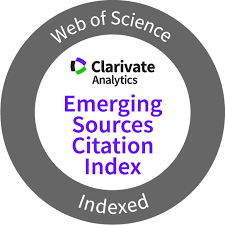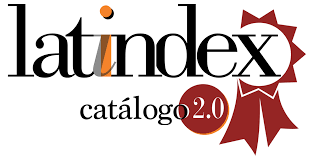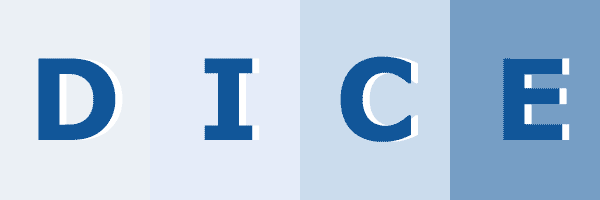Articles of Latin American companies on Wikipedia: Causal relationship between access, participation, and quality variables
DOI:
https://doi.org/10.5783/revrrpp.v13i26.817Keywords:
wikipedia, social media, users, participation, quality controlAbstract
Wikipedia is a paradigmatic example of online collaboration. At an organizational level, the presence of content related to companies and institutions has made it an alternative scenario for social media management and interaction with stakeholders. To establish the eventual causal relationship between outstanding variables (access, participation, and quality), an inferential and correlational statistical analysis on data from articles from 40 Latin American companies was carried out. The results show conditional causality of the increase in participation over the quality of the articles, as well as a positive effect on visits. The result implies for organizations to face the dilemma of strengthening their presence on Wikipedia, while not violating the principle of editorial neutrality, due to conflict of interest.
Downloads
References
Aaltonen, A. & Seiler, S. (2016). Cumulative growth in user-generated content production: evidence from Wikipedia. Management Science, 62(7), 2054-2069. https://doi.org/10.1287/mnsc.2015.2253
Academic Studies of Wikipedia. (2020, October 22) In Wikipedia. https://en.wikipedia.org/w/index.php?title=Wikipedia:Academic_studies_of_Wikipedia&oldid=984931689
Alianza del Pacífico (n.d.). ¿Qué es la Alianza del Pacífico? Retrieved April 22, 2019, from https://alianzapacifico.net/que-es-la-alianza
Bots. (2021, April 11). In Wikipedia. https://en.wikipedia.org/w/index.php?title=Wikipedia:Bots&oldid=1017176057
BrandZ. (2018). BrandZ top 50 most valuable Latin American brands 2018. WPP. https://shorturl.at/fiv16
Comunidad de Wikipedia. (2021, April 3). In Wikipedia. https://es.wikipedia.org/w/index.php?title=Comunidad_de_Wikipedia&oldid=134496074
Conflict of interest. (2021, January 28). In Wikipedia. https://en.wikipedia.org/w/index.php?title=Wikipedia:Conflict_of_interest&oldid=1003365958
Content assessment. (2021, March 8) In Wikipedia. https://en.wikipedia.org/w/index.php?title=Wikipedia:Content_assessment&oldid=1011022543
Distaso, M. W. (2012). Measuring public relations Wikipedia engagement: How bright is the rule. Public Relations Journal, 6(2), 1-22.
DiStaso, M. W. (2013). Perceptions of Wikipedia by public relations professionals: A comparison of 2012 and 2013 surveys. Public Relations Journal, 7(3), 1-23.
DiStaso, M. W., & Messner, M. (2010). Forced transparency: Corporate image on Wikipedia and what it means for public relations. Public Relations Journal, 4(2), 1-23.
DiStaso, M.W., & Messner, M. (2012). Wikipedia's role in reputation management: An analysis of the best and worst companies in the USA. Digithum (14), 1-9.
Etter, M. & Nielsen, F. (2015). Collective remembering of organizations: Co-construction of organizational pasts in Wikipedia. Corporate Communications, 20(4), 431-447. https://doi.org/10.1108/CCIJ-09-2014-0059
Firer-Blaess, S. (2011). Wikipedia: State of the art of the research. Academia. https://www.academia.edu/1539270/Wikipedia_State_of_the_art_of_the_research_April_2011_
General disclaimer. (2020, January 10) In Wikipedia.
https://en.wikipedia.org/w/index.php?title=Wikipedia:General_disclaimer&oldid=935141538
Glott, R., Schmidt, P., & Ghosh, R. (2010). Wikipedia survey–overview of results. Wikipedia Study. http://www.wikipediastudy.org/docs/Wikipedia_Overview_15March2010-FINAL.pdf
González, L. E. (2020). Visibilidad, calidad y pertinencia para la comunicación corporativa de artículos de Wikipedia de empresas colombianas que participan en el mercado bursátil [Master’s Thesis, Universidad del Norte]. Repositorio Digital de la Universidad del Norte. https://manglar.uninorte.edu.co/bitstream/handle/10584/8827/140073.pdf
Hargittai, E., & Shaw, A. (2015). Mind the skills gap: the role of Internet know-how and gender in differentiated contributions to Wikipedia. Information, communication & society, 18(4), 424-442. https://doi.org/10.1080/1369118X.2014.957711
Hinnosaar, M. (2019). Gender inequality in new media: Evidence from Wikipedia. Journal of Economic Behavior & Organization, 163, 262-276. https://doi.org/10.1016/j.jebo.2019.04.020
Kaplan, A., & Haenlein, M. (2014). Collaborative projects (social media application): About Wikipedia, the free encyclopedia. Business horizons, 57(5), 617-626. https://doi.org/10.1016/j.bushor.2014.05.004
Khelladi, I., & Boutinot, A. (2017). The role of Wikipedia on corporate e-reputation: Evidence from French companies. International Studies of Management & Organization, 47(1), 23-41. https://doi.org/10.1080/00208825.2017.1241087
Kiesel, J., Potthast, M., Hagen, M., & Stein, B. (2017). Spatio-temporal analysis of reverted Wikipedia edits. In Proceedings of the International AAAI Conference on Web and Social Media, Canada (pp.122-131). AAAI.
Kim, S., Austin, L., Liu, B. F., & Jin, Y. (2022). Exploring differences in crisis literacy and efficacy on behavioral responses during infectious disease outbreaks. Public Relations Review, 48(3), 102204. https://doi.org/10.1016/j.pubrev.2022.102204
Lemmerich, F., Sáez-Trumper, D., West, R., & Zia, L. (2019). Why the world reads Wikipedia: Beyond English speakers. In Proceedings of the Twelfth ACM International Conference on Web Search and Data Mining (pp. 618-626). ACM. https://doi.org/10.1145/3289600.3291021
Lewoniewski, W. (2019). Measures for Quality Assessment of Articles and Infoboxes in Multilingual Wikipedia. In Abramowicz, W., Paschke, A. (Eds), Lecture Notes in Business Information Processing (Vol 339, pp. 619-633). Springer. https://doi.org/10.1007/978-3-030-04849-5_53
Lewoniewski, W., Węcel, K., & Abramowicz, W. (2019). Multilingual ranking of Wikipedia articles with quality and popularity assessment in different topics. Computers, 8(60), 1-31. https://doi.org/10.3390/computers8030060
Llano A., S. & González, L. E. (2021). Comunicación corporativa y Wikipedia: artículos de empresas colombianas cotizadas en bolsa. Área abierta, 21(2), 153-170. https://doi.org/10.5209/arab.72710
Llano A., S., López-Ospina, H., & González, L. E. (2021). Influencia potencial de artículos de empresas latinoamericanas en Wikipedia. Signo y Pensamiento, 40(78). https://doi.org/10.11144/Javeriana.syp40-78.ipae
List of Wikipedias. (2021, January 17). In Meta-Wiki. https://meta.wikimedia.org/w/index.php?title=List_of_Wikipedias&oldid=20978317
List of Wikipedias by edits per article. (2021, January 5). In Meta-Wiki.
https://meta.wikimedia.org/w/index.php?title=List_of_Wikipedias_by_edits_per_article&oldid=20930559
Mazzei, A., Ravazzani, S., Fisichella, C., Butera, A., & Quaratino, L. (2022). Internal crisis communication strategies: Contingency factors determining an accommodative approach. Public Relations Review, 48(4), 102212. https://doi.org/10.1016/j.pubrev.2022.102212
Minguillón, J., Meneses, J., Aibar, E., Ferran-Ferrer, N., & Fàbregues, S. (2021). Exploring the gender gap in the Spanish Wikipedia: Differences in engagement and editing practices. Plos one, 16(2), 1-21. https://doi.org/10.1371/journal.pone.0246702
Miquel-Ribé, M., & Laniado, D. (2018). Wikipedia culture gap: Quantifying content imbalances across 40 language editions. Frontiers in Physics, 6(54). 1-14. https://doi.org/10.3389/fphy.2018.00054
Nielsen, J. (2006, October 8). The 90-9-1 rule for participation inequality in social media and online communities. Nielsen Norman Group. https://www.nngroup.com/articles/participation-inequality/
Open Knowledge Foundation. (n.d.). What is open? Retrieved May 10, 2021 from https://okfn.org/opendata/
Ortega S., J. F. (2012). Wikipedia: A quantitative análisis [Doctoral dissertation, Universidad Rey Juan Carlos]. BURJC digital. http://hdl.handle.net/10115/11239
Qué es un artículo destacado. (2021, February 10). In Wikipedia. https://es.wikipedia.org/w/index.php?title=Wikipedia:Qu%C3%A9_es_un_art%C3%ADculo_destacado&oldid=133112989
Reinoso, A. J., Gonzalez-Barahona, J. M., Robles, G. & Ortega, F. (2009). A quantitative approach to the use of the Wikipedia. In 2009 IEEE Symposium on Computers and Communications (pp.56-61). IEEE. https://doi.org/10.1109/ISCC.2009.5202401
Reliability of Wikipedia. (2021, January 23) In Wikipedia.
https://en.wikipedia.org/w/index.php?title=Reliability_of_Wikipedia&oldid=1002133079
Roessing, T., & Einwiller, S. (2016). Portrayals of large corporations in the English and German version of Wikipedia - Exploring similarities and differences. Corporate Reputation Review, 19(2), 108-126. https://doi.org/10.1057/crr.2016.3
Schroeder, R., & Taylor, L. (2015). Big data and Wikipedia research: social science knowledge across disciplinary divides. Information, Communication & Society, 18(9), 1039-1056. https://doi.org/10.1080/1369118X.2015.1008538
Shaw, A., & Hargittai, E. (2018). The pipeline of online participation inequalities: The case of Wikipedia editing. Journal of Communication, 68(1), 143-168. https://doi.org/10.1093/joc/jqx003
Similarweb. (n.d.). Clasificación de los principales sitios web. Retrieved May 22, 2021, from https://www.similarweb.com/es/top-websites/
Singer, P., Lemmerich, F., West, R., Zia, L., Wulczyn, E., Strohmaier, M., & Leskovec, J. (2017). Why we read Wikipedia. In Proceedings of the 26th international conference on world wide web (pp.1591-1600). ACM. https://doi.org/10.1145/3038912.3052716
Swartz, A. (2006, September 4). Who writes Wikipedia? Raw Thought. http://www.aaronsw.com/weblog/whowriteswikipedia
Tancer, B. (2008). Click: what millions of people are doing online and why it matters. Hyperion Books.
Tang, X., Wang, H., Ouyang, Z. & Yu, W. (2014). Seek the Consent, Respect the Dissent: An Analysis of User Behaviors in Online Collaborative Community. In J. S. Pan, V. Snasel, E. Corchado, A. Abraham & S. L. Wang (Eds), Intelligent Data analysis and its Applications (Vol. 1, pp. 223-234). Springer. https://doi.org/10.1007/978-3-319-07776-5_24
Toolforge. (n.d.). Pageview analysis. Comparison of pageviews across multiple pages. Retrieved February 3, 2021, from https://pageviews.toolforge.org/
Wang, P., & Li, X. (2020). Assessing the quality of information on Wikipedia: A deep‐learning approach. Journal of the Association for Information Science and Technology, 71(1), 16-28. https://doi.org/10.1002/asi.24210
Weimer, R. C. (1996). Estadística. Cecsa.
Wikimedia Foundation Labs. (n.d.). XTools. Feedeing your data hunger. Retrieved February 4, 2021, from https://xtools.wmflabs.org/
Wikipedia Quality. (2021, January 23). In Wikipedia Quality. https://wikipediaquality.com/index.php?title=Wikipedia_Quality&oldid=26916
Wikipedians. (2021, March 2) In Wikipedia. https://en.wikipedia.org/w/index.php?title=Wikipedia:Wikipedians&oldid=1009822494
Wikirank. (2020, September 24). In Wikipedia Quality. https://wikipediaquality.com/index.php?title=WikiRank&oldid=25408
Wikirank. (n.d.). Quality and popularity assessment of Wikipedia. Retrieved February 5, 2021. Available at: https://wikirank.net/.
Wikistats. (n.d.). Wikimedia statistics. Retrieved May 20, 2021 from https://stats.wikimedia.org/
Zhang, A. F., Wang, R., Blohm, E., Budak, C., Robert, L. P., & Romero, D. M. (2019). Participation of new editors after times of shock on Wikipedia. Proceedings of the International AAAI Conference on Web and Social Media, 13(1). 560-571.
Downloads
Published
How to Cite
Issue
Section
License
Copyright (c) 2023 Sergio Llano Aristizábal, Héctor López Ospina

This work is licensed under a Creative Commons Attribution-NonCommercial-NoDerivatives 4.0 International License.
Authors publishing in this journal agree to the following terms:
a. Authors retain copyright and grant the journal the right to be the first publication of the work as licensed under a Creative Commons Attribution License that allows others to share the work with an acknowledgement of authorship of the work and initial publication in this journal.
b. Authors may separately enter into additional arrangements for non-exclusive distribution of the version of the work published in the journal (e.g., placing it in an institutional repository or publishing it in a book), with an acknowledgement of initial publication in this journal.
c. Authors are allowed and encouraged to disseminate their work electronically (e.g. in institutional repositories or on their own website) before and during the submission process, as it can lead to productive exchanges, as well as earlier and higher citation of published work (see The Effect of Open Access).





